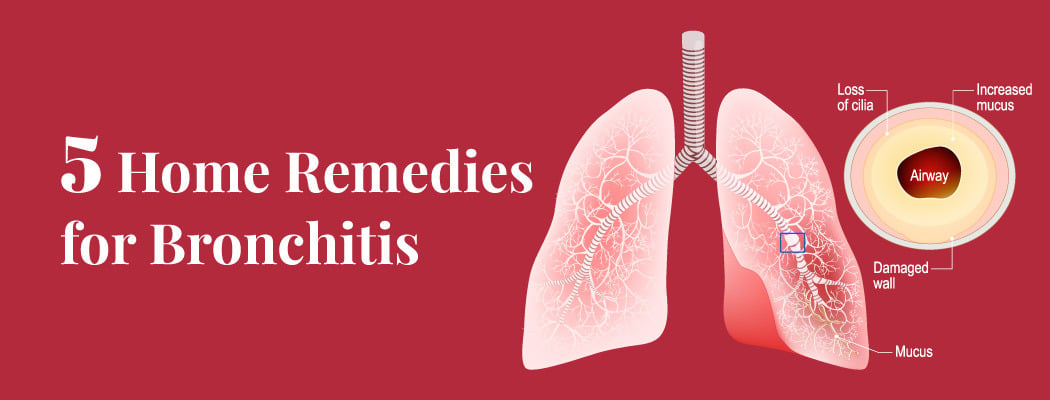How to cure bronchitis permanently
November 5, 2022

A common respiratory condition known as bronchitis is brought on by bacteria, viruses, irritants like smoke, and other particles that exacerbate the bronchial tubes. These tubes transport air to the lungs from the nose and mouth.
Without seeking medical attention, you can treat acute bronchitis independently. A viral or bacterial infection is a common cause of acute bronchitis, and in many cases, the symptoms subside within a few weeks.
Table of Contents
On the other hand, exposure to irritants like cigarette smoke over an extended period typically leads to chronic bronchitis. As a result, managing chronic bronchitis is a little more challenging and typically involves major lifestyle adjustments.
If you have acute bronchitis, it’s critical to address your symptoms as soon as possible is critical to guarantee a rapid recovery. With the right self-care, you ought to be able to recover rapidly.
However, you should see a doctor if your bronchitis worsens, doesn’t go away after a few weeks, or if your lungs sound congested.
If you have bronchitis and constantly cough, you might do everything to stop it. However, other remedies besides cough suppressants, which may have adverse effects, including sleepiness, vertigo, or dry lips, can make you feel better.
Home remedies for bronchitis
Avoid anything that irritates your lungs
The best way to prevent and treat bronchitis is to avoid smoke, chemical fumes, dust, and air pollution. You should discuss your options with your doctor if you smoke and are having problems quitting. If you must be around other substances, for example, if you work nearby—wear a mask and open windows whenever you can.
Get plenty of rest
You may feel extremely exhausted due to the bronchitis infection and cough. Get as much sleep as possible, especially in the first few days, and pay attention to your body. Use an additional cushion to support your head and prevent mucus from collecting in the back of your throat if a nocturnal cough keeps you awake.
Drink Clear Fluids
It’s crucial to break up the mucus in your chest when you have bronchitis so you can cough it up and breathe more easily. Drinking lots of liquids, such as water, diluted fruit juices, herbal tea, and clear soups, is the most effective technique to thin mucus. Aim for 8–12 glasses every day. Avoid using coffee and alcohol as much as possible.
Steam Inhalation
Another method to help mucus break up and leave your body more quickly is doing this. Pour boiling water into a sizable, heatproof bowl to create a steam bowl. (Use extreme caution around children and avoid using hot water to avoid getting burned.) Lean over the bowl while wearing a towel over your head to create a tent to trap the steam. Take a 10-minute sip of the vapours. Other options include taking a hot shower or relaxing in a steamy restroom.
Use a humidifier
While you sleep, a cold- or warm-mist humidifier in your bedroom adds moisture to the air, clearing mucus. To get rid of bacteria and mould, clean your humidifier frequently.
Gargle with salt water
Some of the mucus that coats and irritates your throat may be eliminated by doing this. One teaspoon of salt should be dissolved in a glass of warm water. Gargle it and then spit it out. This can be repeated multiple times daily to soothe your throat.
Garlic
It’s thought that garlic has a variety of therapeutic benefits. According to the findings of 2016, garlic successfully slowed the spread of the infectious bronchitis virus. According to this research, garlic may be utilised as a homoeopathic treatment for bronchitis.
Although garlic is best when fresh, it is also available in capsule form if you don’t enjoy the flavour.
If you have a bleeding issue, use garlic with caution. To be sure it won’t disturb your stomach, always take it in modest amounts.
Turmeric
The spice turmeric is derived from the Curcuma longa plant’s root.
According to a 2018 study, turmeric possesses various qualities that may help it treat bronchitis effectively. Antiviral, Antibacterial, and Anti-Inflammatory actions are a few of them.
Additionally, turmeric enhances antioxidant activity, which suggests that it may aid in easing discomfort and strengthening immunity.
Taking turmeric:
- Use fresh turmeric in salad dressings or while making pickles.
- To form a paste, combine 1/2 teaspoon of powdered turmeric with one teaspoon of honey. While symptoms last, consume the paste 1 to 3 times daily.
- As directed, take the turmeric capsules.
- Make tea with fresh or powdered turmeric.
Quiet a Cough
Since ancient times, honey has been utilised as medicine. It can ease a sore throat and relieve the unpleasant cough that sometimes accompanies bronchitis, whether consumed on its own or stirred into warm herbal tea. However, honey shouldn’t be given to infants under one since it can result in infant botulism, which is a severe type of food poisoning.
Pursed-lip breathing techniques
People with bronchitis and COPD may benefit from the pursed-lip breathing method.
The COPD Foundation suggests that this method aids in improving breathing by:
- Increasing the amount of time that can be spent on specific activities by keeping airways open longer, slowing breathing, helping the lungs clear stale, trapped air, and facilitating the exchange of oxygen and carbon dioxide
- Pursed-lip breathing involves inhaling for two seconds via the nose, pouting the lips and gently exhaling for four to six seconds through the mouth.
Symptoms of bronchitis
The most typical signs of bronchitis include:
- Cough
- Having trouble breathing
- Mucus fatigue
- Chest ache all around Low-grade fever
- Chills
Acute bronchitis may have been brought on by symptoms similar to the common cold or the flu. Such signs include, for instance:
- Headache
- Nose bleeds Sore throat
Complications of bronchitis
Pneumonia develops in about 1 out of every 20 instances of bronchitis. Additionally, COPD may be indicated by recurrent bronchitis attacks.
How to prevent bronchitis
There are various actions you can take to lower your chance of getting either acute or chronic bronchitis:
Avoid lung irritants: If contact with them cannot be avoided, take precautions to lessen exposure. For example, consider increasing ventilation or donning a mask. Stop smoking: Avoiding secondhand smoke and quitting tobacco will assist.
Who can diagnose bronchitis?
It’s most likely best to start by visiting a general practitioner or family physician. A physician who focuses on lung disorders may be recommended if you have persistent bronchitis (pulmonologist).
People also ask
What helps bronchitis heal faster?
- Getting lots of sleep
- Consuming enough liquids
- Using a humidifier
- Giving up smoking
- Maintaining a healthy diet
- Breathing through pursed lips
Can bronchitis be fully cured?
Most acute bronchitis cases improve independently, typically within a few weeks.
What removes bronchitis?
To facilitate coughing up the mucus and improve your ability to breathe when you have bronchitis, you must first loosen the mucus in your chest. Drinking lots of liquids, such as water, diluted fruit juices, herbal tea, and clear soups, is the most effective technique to thin mucus. Aim for 8–12 glasses every day. Avoid using coffee and alcohol as much as possible.








